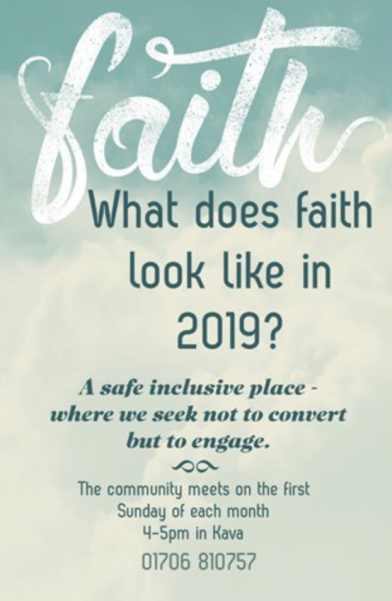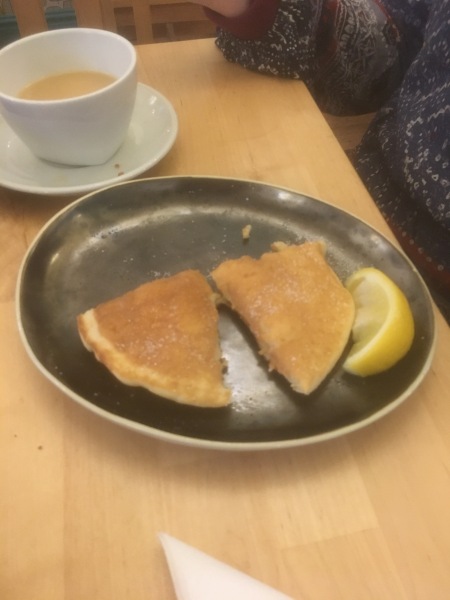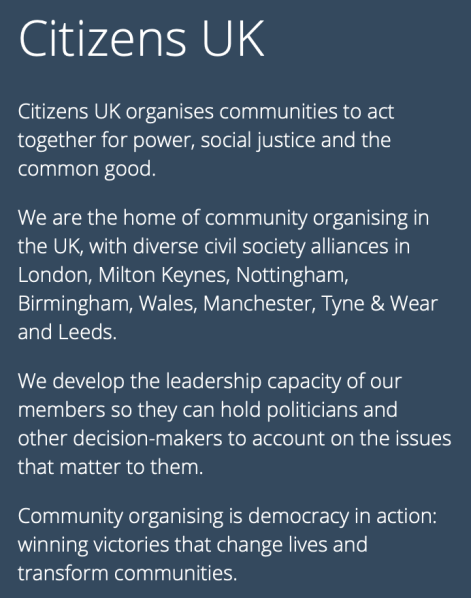For some, as we approach the period of Lent, people can decide to fast, to abstain from food and/or drink – but why?
I want Lent .. to affect not only the next 40 days
but also the next 40 years
Rachel Held-Evans
In my younger days (!) I have given up chocolate, sweets and/or alcohol. But now I look back and wonder to what benefit, and to whom? Therefore, in our second meeting of the Faith group,  where we look at faith topics from the perspective of being in the Todmorden area and in 2019, we looked at what fasting means to us now and could mean to us following some discussion led by people from one of the churches, Tania, and the Imam, Waseem, from the Mosque in Todmorden. It wasn’t a direct comparison but a way to consider what each perspective offers, to draw upon views from those of no particular faith and to see what we might consider in the future. Although we looked at this from a faith perspective we were always conscious that those who attend may not have a faith or believe differently. We hold that inclusivity.
where we look at faith topics from the perspective of being in the Todmorden area and in 2019, we looked at what fasting means to us now and could mean to us following some discussion led by people from one of the churches, Tania, and the Imam, Waseem, from the Mosque in Todmorden. It wasn’t a direct comparison but a way to consider what each perspective offers, to draw upon views from those of no particular faith and to see what we might consider in the future. Although we looked at this from a faith perspective we were always conscious that those who attend may not have a faith or believe differently. We hold that inclusivity.
It was good to see so many people from our first meeting and, despite Storm Freya, it was wonderful to meet people who came for the first time.
We like to start our meetings with a catch up on how things are going for each of us, but do this in a non-intrusive manner, such as with the Weather Forecast! Could you describe your last week using weather terminology? We are a resilient bunch as despite many metaphorical storms, the sun kept shining!
Sadly, one of the ladies from the Mosque who had kindly said she would give us her own thoughts about fasting had to decline at the last moment due to family circumstances. The Imam and his colleague were present and gave an illuminating introduction to the Islamic view of fasting. There were three strands to fasting or Sawm or Siyām, one of the pillars of Islam: abstaining from drinking, eating and relationships but only during the daylight hours from Sahur to Iftar, from dawn to sunset. This would develop self-control, understand better God’s gifts and compassion towards the deprived. It heightened a sense of spirituality. Muslims are to fast 3 days whilst on the Haj, the pilgrimage to Mecca which they should do at least once in their lives. They should fast a further 7 days upon return from the Haj. Fasting is the motive to be more benevolent, with charity to the poor and needy. Fasting is obligatory if they are: Muslim; passed the age of puberty, therefore accountable; able to fast, settled and not travelling; and not sick or in extreme pain, breastfeeding or pregnant, nor menstruating. It was evident that with Islamic fasting this act was to consider “more than yourself“; in fact, it was possibly seen as bi-directional. Fasting looks inward and sees how we are, what our own motives are, especially with respect to Allah or God. It also looks outwards, to the world and considers how we can support the poorest, our neighbour, our community.
If this brings you closer to God, is that tri-directional??
We also heard from a Christian perspective. Lent isn’t a directive from Christ and has been developed over many centuries as part of Christian tradition. Nevertheless, Jesus implored us (1) to take nothing with us on our discipleship journey. For upon his departure, the entire dynamic would change, requiring the disciples a new form of preparation. Fasting deprives the body of nourishment and the pleasurable taste of food. Our hearts and minds can become totally focussed and directed towards God so that God becomes our source of our strength – noted when Jesus fasted for those 40 days. According to Matthew’s Gospel (2), it should be done with an air of humility, so it is not obvious to others.
Does that mean we still can show joy in Lent?
In the Old Testament we are asked to “loose the chains for injustice and untie the cords of the yoke, to set the oppressed free and break every yoke that binds us. Is it not to share your food with the hungry and provide the poor wanderer with shelter?” (3). So, as with the Islamic fasting, fasting leads to justice for others. Fasting in itself may lead to a greater stronger relationship with God but in that it then asks us to do something. It was also interesting to hear that through this process of fasting and Lent we have a glimpse of salvation. For, as we heard, fasting reminds us of our faith, but it is not essential for salvation, for God has already assured us of that. This highlighted the significance of fasting for those of faith.
We also heard of Dr Mosley’s 5-2 diet which due to its intermittent fasting, rather than a reduction of calorific intake every day, is supposedly to bring impressive health benefits.
For those of faith, was it essential to fast or was this an optional act which could help us spiritually?
For those without a religious faith, was fasting solely down to medical benefits?
We are thankful for the generosity of Nick and the staff from Kava for the creation of wonderful pancakes to act as a taster for our subsequent discussions!

Here we discussed whether we had fasted in the past, whether it was for one day or for longer. The benefits, as explained by the Imam and his colleague, appeared significant as they gave a focus upon ourselves, God (if we had faith), but also a focus upon others, the poorer within our community. The money we might have spent on such food and drink could now be spent on others. One suggestion was to have “intentional conversations with others“, whilst another suggested “intentionally listening to others“.
Oddly I do not recall many conversations about abstinence from relationships; was that our English reserve..would it change you?
What could we conclude?
There’s more to fasting than giving up things!
We had seen that fasting from food and drink could bring significant rewards, in terms of physical and spiritual benefits. Nevertheless, we might also wish to take on things as well. The left hand image below gives us opportunities to give and take up actions which promote better social cohesion. The right hand image focuses upon actions that we might take so we improve our world for all.
Other suggestions might be (don’t try them all but possibly consider some) :
– Talking to Homeless people… no-matter how busy you are you have to have a short conversation with any homeless person who seems up for one each day (one a day if you meet a lot of them).
– Thank you Cards – buy 40 thank you cards and stamps… send one a day
– Encouragements – Send an encouraging text every day with something you appreciate about that person.
– Reading a gospel – it only takes about 2 hours to read the whole of a gospel… they have fewer words than the average Sunday Paper… or listen to one a week on audio (David Suchet does great renditions on YouTube).
– Reading a favourite book which brings joy to your heart, savouring it, allowing anxieties to disappear.
– Humiliation – take up opportunities that make you look a bit silly – singing in the street, wearing bright clothing, smiling at strangers etc.
– Friendliness – Say good morning/good evening to strangers you pass in the street… all of them.
– Humility – Over Lent make a big effort to brag about the good deeds of others and not your own.
– Reconciliation – Say something sincerely nice on the Facebook wall of people or organisations who you don’t find that easy to…. without telling them that you find it hard obviously!
– Forgiveness and Apology – work towards forgiving those who have hurt us and be more ready to say sorry where that is needed.
Next month, on April 7th, we will look at Non-violent Direct Action. There are many people who have had experience of such in their life times, whilst others have not desired such an opportunity.
Were you involved in CND marches or as such in the past?
What might be your definition of non-violence and violent?
CitizensUK do some great work across the country.  It is a ‘bottom-up project where the people on the front line identify a problem, define a strategy and take action. This isn’t irrational protest but coordinated and well considered, even targeted planning to resolve an issue.
It is a ‘bottom-up project where the people on the front line identify a problem, define a strategy and take action. This isn’t irrational protest but coordinated and well considered, even targeted planning to resolve an issue.
Is this what we might desire?
A question to leave you with?…
What might you desire so strongly that you might be arrested for it?
Thank you again to all you attended and we welcome anyone to join us next month.
(1) Luke’s Gospel 22:35-36
(2) Matthew 6:17-18
(3) Isaiah 58:6-7